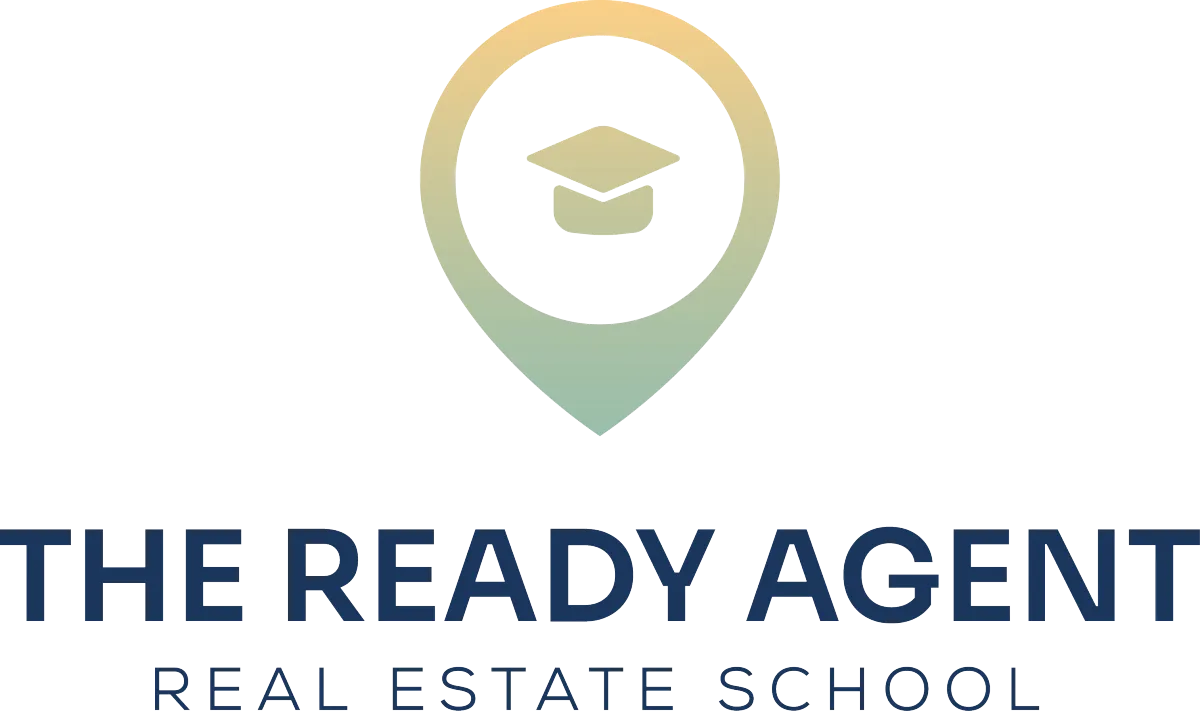
Crafting Success with Key Tech Tools for Real Estate Agents
The real estate industry has evolved in recent years. Navigating the dynamic landscape of real estate today requires more than traditional methods. It needs knowledge of cutting-edge real estate tech tools.
In this digital age, we cannot overstate the importance of real estate agents tools. These tools are more than convenient. They are vital resources that empower real estate agents to improve client experiences. These tools can also provide them with a competitive edge in a crowded market.
This blog discusses the critical areas where tech tools transform the roles of modern real estate agents. We will explore Customer Relationship Management (CRM) software and virtual tours. Also, we will learn about digital marketing, data analytics, mobile apps, and implementation techniques.
Understanding the Digital Shift in Real Estate
Technology has revolutionized the marketing, searching, and transactions of properties. The evolution has been evident. It ranges from simple web listings, advanced virtual reality tours, and AI-driven analytics.
The digital shift has transformed the relationship between real estate agents and their clients. Clients now expect that information, virtual viewings, and smooth communication will be immediately accessible. This leads to a significant shift in the traditional agent-client relationship.
Many new evolving trends are reshaping the future of real estate technology. These include the growing adoption of blockchain technology for property transactions. Another trend is the incorporation of artificial intelligence and machine learning into predictive analytics. Some trends also include the widespread use of augmented reality in demonstrating properties and the growing significance of eco-friendliness and smart home technology.
Essential Tech Tools for Modern Real Estate Agents
Customer Relationship Management (CRM) Software
In the real estate industry, effective client relationships and information management is essential. CRM software serves as the backbone of a real estate agent's day-to-day operations. It offers a centralized platform for managing and arranging client data, interactions, and transactions.
CRMs act as a centralized hub for all lead management needs during the sales cycle. This includes gathering leads from open houses, website inquiries, and referrals. Among these are prioritizing promising prospects and automating follow-ups to prevent losing leads.
This software also enables real estate agents to build stronger relationships with their clients. This increases client loyalty and satisfaction. It consists of personalization depending on the particular needs of the client. Another feature is timely communication via scheduled emails, updates, and reminders. Segmenting clients by their buying behavior and property preferences are also available.
Additionally, CRMs ensure the completion of seamless and accurate transactions. This includes managing transaction papers, contracts, and progress within the system. It features task automation on paperwork to cut down on human labor and avoid errors. Collaborating among involved lenders and stakeholders is also included.
Top Recommended CRMs for Real Estate Agents
Wise Agent: This intuitive real estate CRM platform is the most comprehensive option overall. It has extensive features designed for real estate workflows. Contact management, task automation, and transaction tracking are also available.
LionDesk: This platform is the best real estate CRM available at an affordable price. It offers the best AI tools and extensive features aimed at enhancing agent-client interactions and agent productivity. Video email, lead importing, and transaction management are its available features.
Follow Up Boss: This user-friendly real estate CRM platform is the best option focused on integrations. It streamlines lead nurturing and communication with clients. Its main objectives are managing leads and automating follow-ups. It also focuses on integrating with other marketing platforms and various lead sources.
Virtual Tour and Listing Platforms
Visual storytelling is vital in the real estate industry and has revolutionized the field. Platforms for virtual tours allow potential buyers to see captivating properties. This enables them to browse properties from any location remotely. It saves them time and provides convenience.
Besides improving client engagement, virtual tours offer accessible and interactive experiences. Clients can navigate across rooms and spaces and receive a 360-degree view of the properties.
Notable Platforms and Their Features
Matterport: This 3D virtual tour software connects with multiple listing service (MLS) platforms to enable easy sharing and embedding. Floor layouts, dollhouse views, and interactive walkthroughs are also available.
TourWizard: With music, video, and panoramic photos, this easy-to-use platform generates customisable virtual tours. It interconnects with lead generation tools to collect potential buyers' information as well.
CloudPano: This user-friendly platform generates 360-degree virtual tours utilizing high-resolution photos. It also combines marketing tools for lead capture and automated follow-ups. White label is another option for branding and customization.
Data Analytics and Market Insights Tools
The modern world is data-driven. And success depends on the ability to make decisions based on data. Real estate agents use data analytics to make well-informed decisions. These tools help agents assess pricing variations, market trends, and supply-demand dynamics.
Agents can also observe trends in purchases, preferences, and buyer/seller behavior. These tools have predictive analytics to foresee changes in the market and property trends. Predictive algorithms and historical data are the foundation for this.
Tools for Analyzing Market Trends and Buyer/Seller Behavior
Real Estate IQ: This advanced technology gives complete market analytics and access to off-market leads and deal-finding skills.
Realtors Property Resource (RPR): This database incorporates mapping tools to help visualize market trends. It also provides access to MLS data, area demographics, and property history.
Realeflow: This program for real estate investing includes behavioral insights for focused marketing. It also has tools for evaluating the profitability and return on investment of possible real estate deals.
Digital Marketing and Social Media Tools
Social media has become integral to real estate marketing plans. Real estate agents should take advantage of digital marketing strategies and use social media sites. This aids in reaching a wider audience, interacting with potential clients, and building a strong online presence.
Social media platforms offer invaluable avenues for real estate marketing, brand growth, and lead generation. Using them facilitates ties and networking within a community. This also involves sharing visual content on property listings, virtual tours, and client reviews to engage audiences.
Real estate agents can also use targeted ads through social media platforms. This assists with accessing specific demographics and growing their client base.
Effective Digital Marketing Tools and Strategies
Facebook and Instagram: These social media sites provide opportunities for agents to reach out to specific demographics. They can interact with potential clients through appealing visual content such as stories, reels, and posts.
Mailchimp or Constant Contact: These digital platforms for email marketing create attractive newsletters, market reports, and property updates. They keep clients informed and foster relationships between them and their agents.
Google Ads or LinkedIn Ads: These platforms for paid promotion focus on specific property searches and keywords related to high-end or commercial real estate listings.
Mobile Apps for Real-Time Accessibility
The real estate industry moves at a swift pace, making the mobility of its agents critical. Access to mobile apps is crucial for these on-the-go agents. Mobile apps make task management, updates, and real-time communication easier.
Additionally, real estate agents and clients can enjoy unmatched flexibility and convenience with mobile apps. Such tools facilitate prompt communication with clients, coworkers, and potential customers, regardless of their location.
Clients can send questions and receive real-time updates on property listings and status changes. While on the go, real estate agents can plan showings, keep track of appointments, and organize tasks.
Must-Have Mobile Apps for On-the-Go Agents
WhatsApp: This messaging app offers more features than group chat. It also facilitates speedy client interactions through file sharing.
Zillow or Realtor.com: These websites give agents access to local data, pricing trends, and property listings. They also assist in client consultations and property comparisons.
Google Earth or Maps: These mapping services aid in studying neighborhoods and finding properties. These also offer clients a peek into the environment around them.
Implementing Tech Tools for Efficiency
Strategies for Integrating Tech Tools Into Daily Workflows
Real estate agents use a strategic approach that ensures seamless integration. This makes the adoption of tech tools successful. Aligning these tools with their existing workflows will enhance efficiency. For focused solutions, the chosen tools should target particular workflow inefficiencies or issues.
Real estate agents should choose tech tools that offer smooth integration, user-friendly features, and intuitive interfaces. This avoids operational disruptions and guarantees easy adaptation.
Training sessions or workshops allow agents to get familiarized with the features of the selected tech tools. Encouraging team members to embrace technology is also important. This creates a tech-friendly environment with the team for sharing best practices and experiences.
Overcoming Challenges and Maximizing Tool Efficiency
Implementing tech tools into daily workflows may present challenges. Real estate agents must address these implementation hurdles to maximize their efficiency. They should ensure to update their tools regularly for new features, bug fixes, and enhanced security.
Real estate agents can also get input from agents using the tools. This can aid in pinpointing problem areas, usability concerns, and possibilities for enhancement. Support channels and resources should be accessible. This can assist agents having problems in troubleshooting or need help on how to use these tools.
Staying Updated with Emerging Technologies
Real estate agents should have continuous learning about the latest trends and tools. This indicates that they are aware of the best practices associated with these tools. Agents can further enhance their understanding. They can engage with experts in the field, attend industry conferences, and networking to gain insights into upcoming technologies.
Final Thoughts
In today's competing market, technology is not only an option but a must-have. Adopting these tools allows real estate agents to enhance their productivity. Additionally, it offers excellent client experiences and a competitive edge.
The changes of the digital age are fast. Sustained success requires embracing an attitude of continual learning and adaptation. Real estate agents should be proactive in engaging with emerging technologies and market trends. They will thrive in this ever-evolving landscape.
At The Ready Agent Real Estate School, we understand the pivotal role of technology in modern real estate. Our comprehensive real estate agent courses highlight the school's industry-specific curriculum, expert instructors, and emphasis on technology integration. We equip agents with not only real estate expertise but also cutting-edge tech skills.
Ready to revolutionize your real estate career with tech? Join us today and become the tech-savvy real estate agent the future demands!

Check Out Our Blog
About
Content
© 2024 The Ready Agent Real Estate School. All rights reserved


